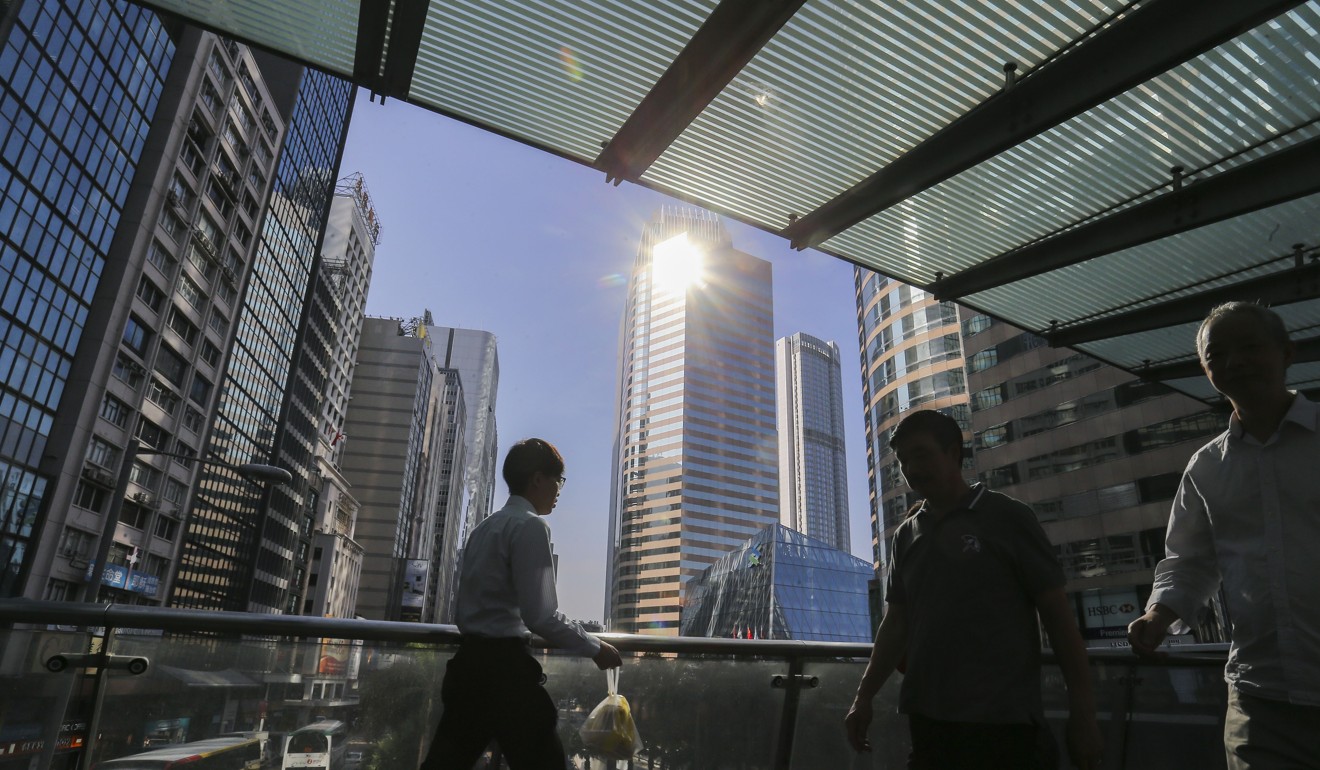
Time for Hong Kong workers to get reasonable 5.5 per cent pay rise says union chief, as she calls out companies for not sharing the wealth
- Confederation of Trade Unions boss points to massive profits and says worker morale will be undermined by small rise
- Sun Hung Kai Properties among companies reporting double-digit growth as it posts annual profit of almost HK$50 billion
A trade union chief has called on Hong Kong businesses to give staff a 5.5 per cent pay rise this year, and said workers had not benefited from the fruits of their own labour in the past.
Carol Ng Man-yee, chairwoman of the Confederation of Trade Unions (CTU), said over the past 10 years there was an 18 per cent gap between the increase in productivity and the rise in pay in real terms for staff.
On Sunday, Ng also told bosses they should not try to use the US-China trade war as an excuse to rein in staff pay, and any wage rise below the CTU’s recommendation would adversely affect employee morale.

According to Ng, taking into account the latest official estimate of 2.4 per cent actual GDP growth, an inflation rate of 2.7 per cent, and an estimated 3.2 per cent growth in the consumer price index, the CTU believed a pay rise of 5.5 per cent increase would be reasonable.
“The 18 per cent difference between real wage growth and productivity growth over the past 10 years has reflected the fact that the city’s employees have failed to enjoy the economic benefits they contributed,” she said.
“Our proposed pay rise of 5.5 per cent for next year is reasonable. Any pay rise below this rate will only undermine staff morale.”
Despite the threat of the US-China trade war, the CTU’s research also found that companies recorded lucrative profits this year, with some reporting double-digit growth, including Swire Pacific, which increased its profits 11 per cent to HK$13.5 billion (US$1.73 billion), and a stunning 29 per cent increase recorded by Hang Seng Bank to HK$12.6 billion for the first half of this year.
Sun Hung Kai Properties reported an annual profit of almost HK$50 billion for this year, up 19.6 per cent over the previous financial year.
Xi Jinping tells China’s trade union to put workers first, but will it take any notice?
Ng also warned local employers against using any excuses such as the trade war to curb pay rises.
“In the past, even in good times, local enterprises liked to use different excuses to curb pay rise levels. So far, no one can predict the real impact of the trade war on Hong Kong’s economy, so local employers should stop using it as an excuse,” she said.
CTU general secretary Lee Cheuk-yan agreed, and said if employees were continuously exploited, social discontent would boil over.
Ng also called for the pay rise to apply to overall income, as some employers only applied increases to basic salary, excluding commissions and allowances. But, for those employees, their basic salary only accounted for about 40 per cent of their overall monthly wage.
“We have learned from many staff unions that some firms are very cunning, and they divided staff pay into basic salary, and commissions and allowances,” she said.
“However, the annual pay rise was only applied to the basic salary. It makes their overall pay rise actually less than 1 per cent a year.”
Hong Kong rail unions call MTR’s 3.9 per cent pay rise ‘disappointing’
Wong Wai-kit, of Vitasoy Employees Union, said he had worked for the company for about 10 years as a transport worker, but the annual pay rise only applied to his basic salary, which was about HK$8,000 at present.
Wong, who earned more than HK$15,000 a month, including about HK$6,000 monthly commission based on the workload, and over HK$1,000 allowance, the annual pay rise meant he was only able to get a wage rise of a few hundred dollars over the past 10 years.
Vitasoy posted growth of 25 per cent in gross profits to HK$2.4 billion in its latest earnings report, citing higher sales.
Cheung Chun-wah, chairman of Hong Kong Nestle Workers Union, also called for an annual rise to apply to overall pay, not just to their basic salary of HK$8,000 a month, which accounted for only half of their monthly wage.

